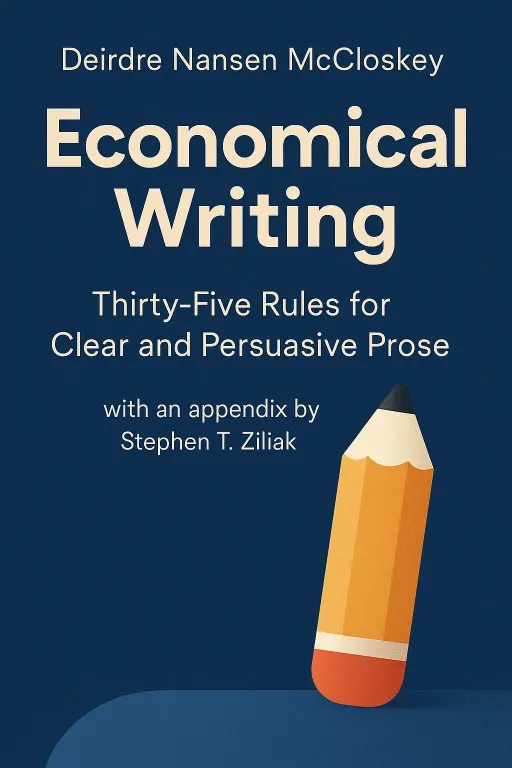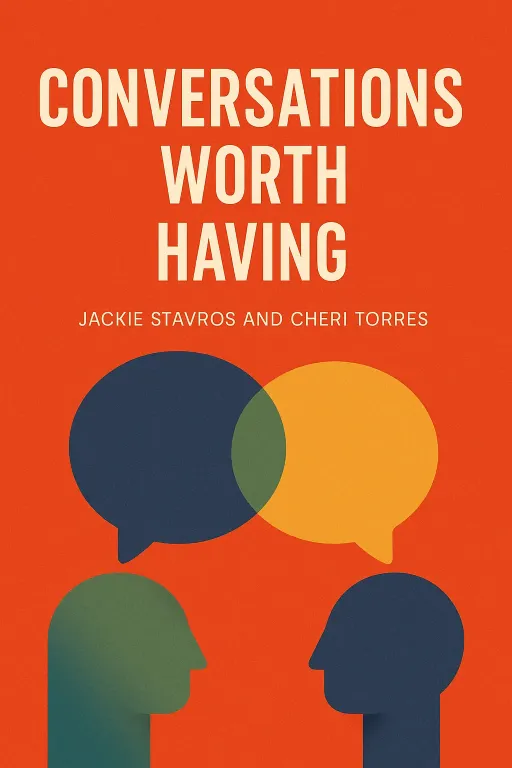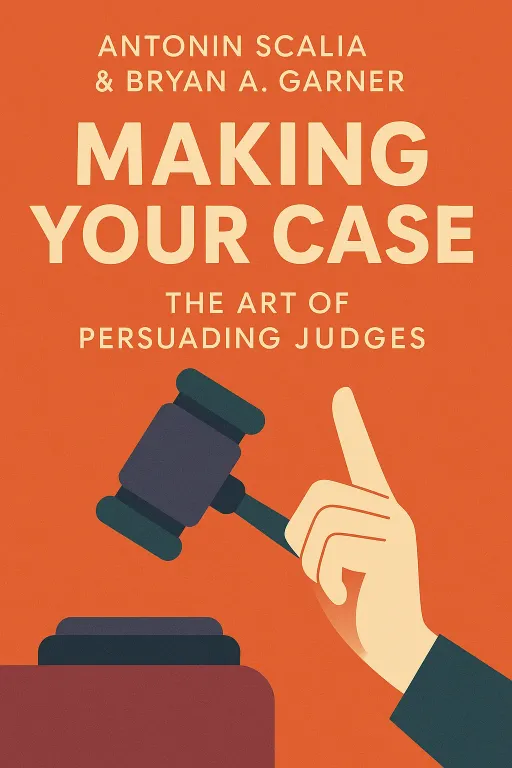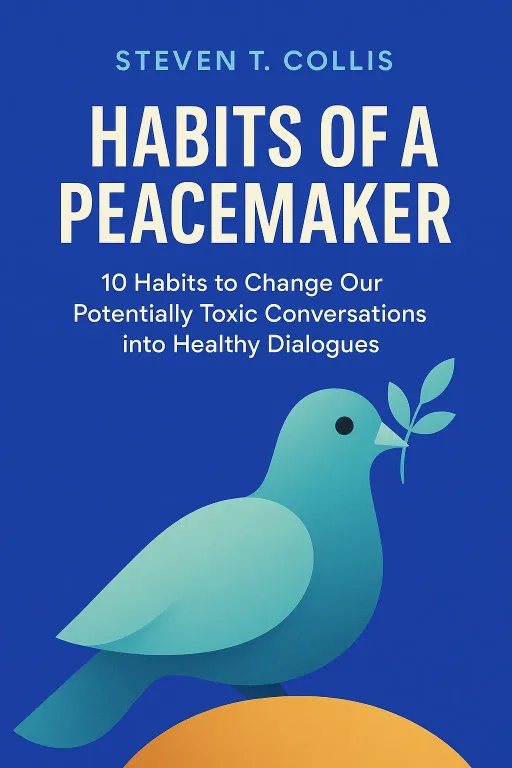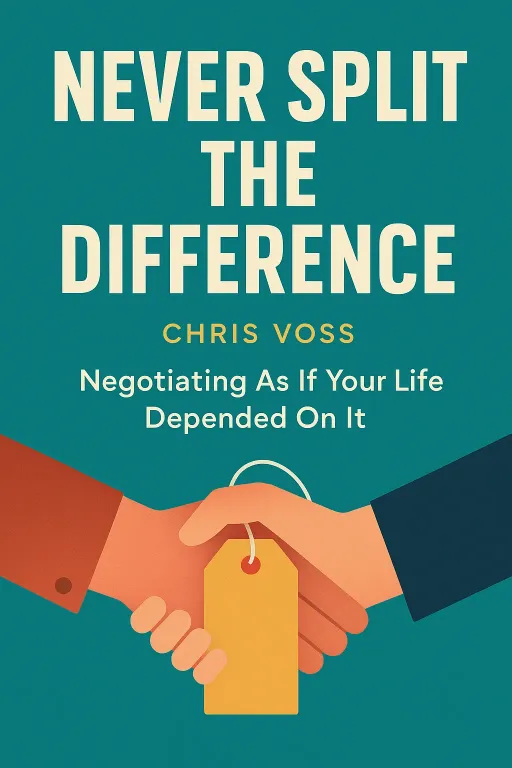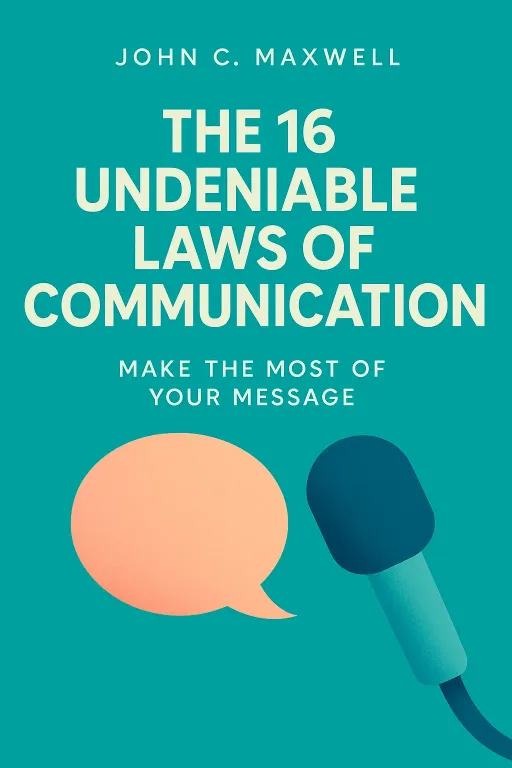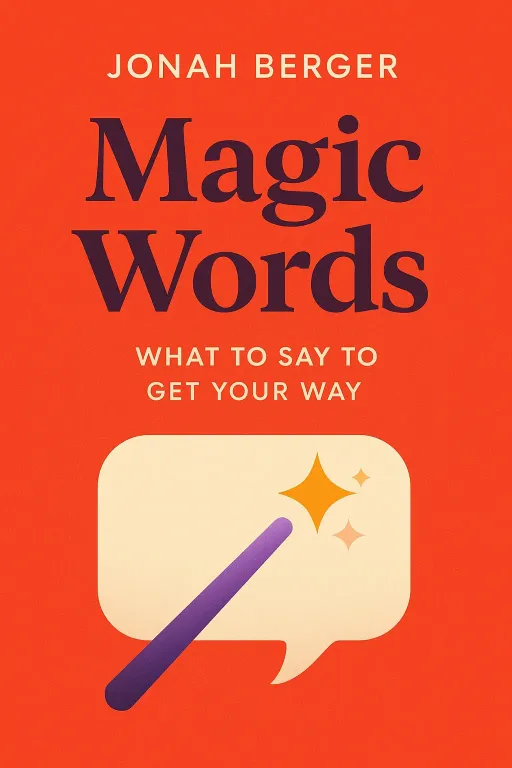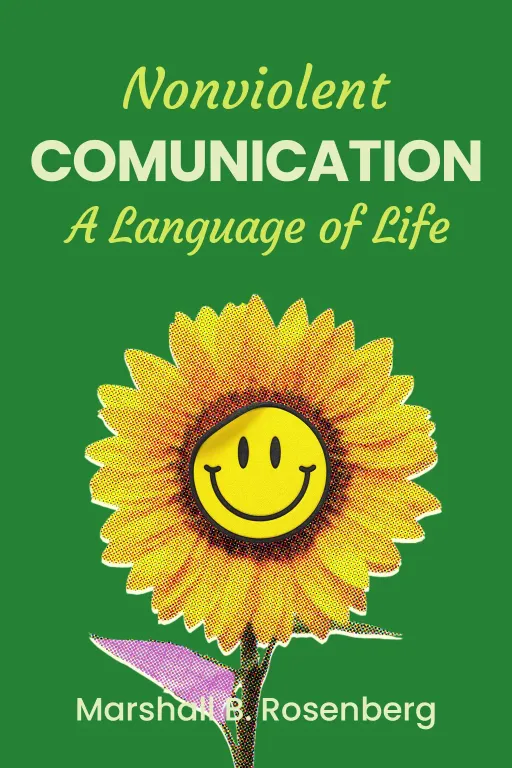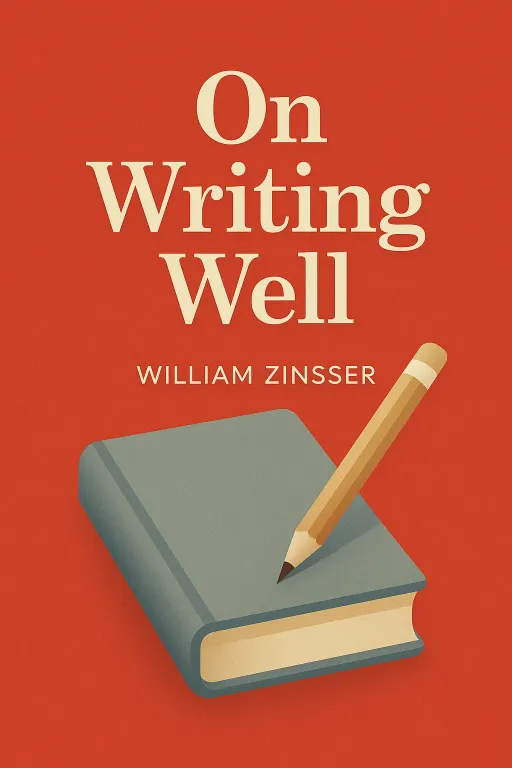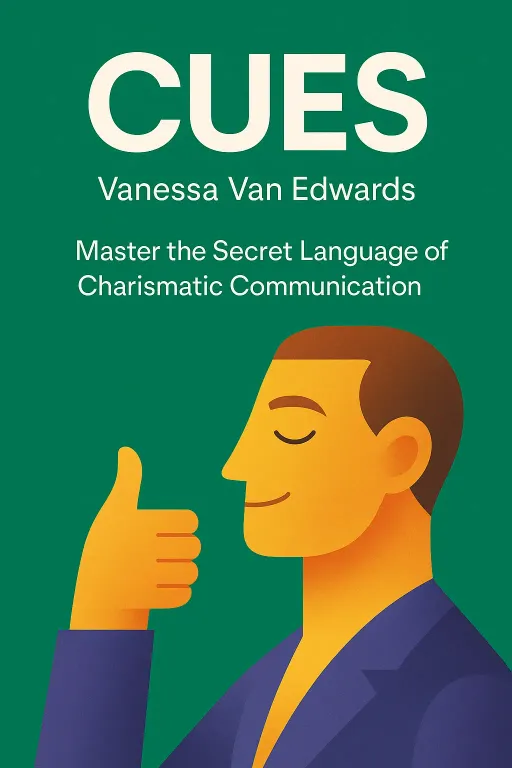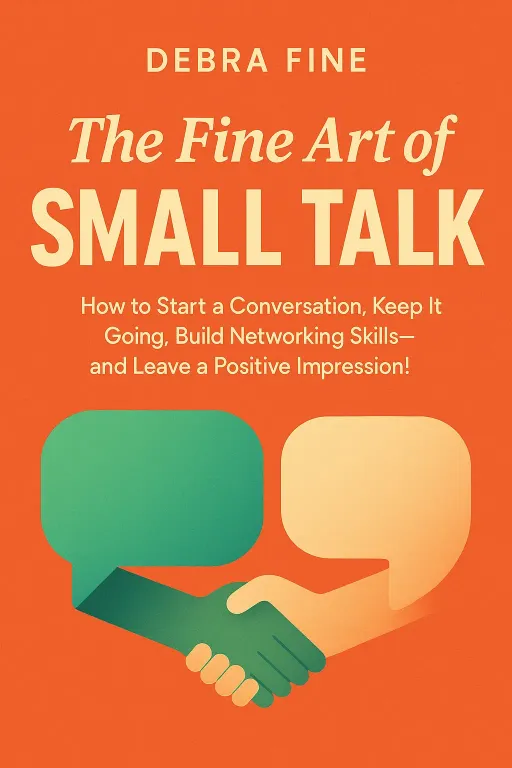
The Small Talk Superpower
12 minHow to Start a Conversation, Keep It Going, Build Networking Skills—and Leave a Positive Impression!
Golden Hook & Introduction
SECTION
Michelle: Mark, here’s a wild fact for you. A study found that doctors who spend just a few extra minutes on small talk are significantly less likely to be sued. Mark: Wait, seriously? You’re telling me the best defense against a malpractice lawsuit isn't better medicine—it's asking about someone's summer plans? Michelle: That’s the gist of it. It turns out a little chitchat can be more powerful than a legal team. And that surprising power is the core idea in Debra Fine's bestselling book, The Fine Art of Small Talk. Mark: Debra Fine... wasn't she an engineer? It seems like an odd jump from building bridges to teaching people how to chat at a cocktail party. Michelle: Exactly! And that's her secret weapon. She was, in her own words, a shy 'enginerd' who felt completely lost in social situations. So she had to reverse-engineer the whole process of human connection. Mark: Ah, so she created a system. That makes sense. Michelle: A system that’s so effective, the book has been translated into over two dozen languages. It proves that small talk isn't some innate talent you're born with. It's a learnable skill. And it all starts with understanding one fundamental, and often overlooked, principle.
The 'Feel-Good Factor': Why Small Talk is Your Secret Superpower
SECTION
Michelle: That principle is what Fine calls the 'feel-good factor.' We like to think we make decisions based on logic, data, and spreadsheets. But the book argues that we're really just emotional creatures looking for a good feeling. Mark: I mean, that sounds a bit cynical, but I can't say it's wrong. We've all chosen a coffee shop because the barista is friendly, not because their beans are objectively 5% better. Michelle: Precisely. She tells this fantastic story about two printing shops right across the street from each other. She walks into the first one, and there's a sign on the wall that says, "Lack of preparation on your part does not constitute an emergency on my part." Mark: Whoa. That’s not a sign; that’s a declaration of war. I would walk right out of that shop. It's not even about the price at that point; it's about not wanting to feel like an idiot before you've even said hello. Michelle: She did exactly that. She walked across the street to the second shop. And on their wall, they had signs that said things like, "Stuck? We'll help you out of a prickly situation," and "In a jam? We'll help you out of a sticky situation." Mark: Okay, that’s a little cheesy, but I know exactly where I'm getting my printing done. The second place, no question. They’re signaling that they're on my team. Michelle: And that's the entire point. The products were identical. The prices were comparable. The only difference was how each place made her feel. This connects to a famous quote from business guru Mark McCormack: "All things being equal, people will buy from a friend. All things being not quite so equal, people will still buy from a friend." Mark: That’s powerful. It reframes small talk from this awkward, time-wasting prelude into the main event. It’s the work before the work. But does this 'feel-good factor' only apply to business and sales? Does it work in, you know, real life? Michelle: It's even more important there. Think about the author's own story. She was a successful engineer, brilliant at her job, but she was miserable at conferences. She’d panic during the coffee breaks, only knowing how to ask, "So, what do you do?" and then just stand there in awkward silence. Mark: I know that feeling. It’s like your brain just turns into static. Michelle: Right. Her big turning point came after her divorce. She forced herself to go out and decided to actually talk to people. One night, she saw a guy, Rex, at a happy hour. She was too scared to approach him, but her friend pushed her. So she walked over, introduced herself, and they ended up dating. Mark: A classic 'go for it' story. Michelle: But here's the twist. Later, she found out Rex was just as terrified as she was. He was too shy to make the first move. And she had this epiphany: the world is full of talented, wonderful, but incredibly shy people. Her silence wasn't just holding her back; it was preventing her from connecting with people just like her. Mark: Huh. So her shyness could have easily been misinterpreted by him as her being aloof or uninterested. Michelle: Exactly. In another story, she talks about a senior VP at her old company named Bob. She admired him but was always too intimidated to speak to him at events. Years later, she was in a sales role and called on him for business. He shut her down completely. He told her he thought she was a snob for all those years she ignored him. Mark: Ouch. That’s a brutal lesson. Her shyness was read as arrogance. Michelle: It’s a perfect example of the stakes. Small talk isn't just about being polite. It's about managing the story people tell themselves about you. And the good news is, Fine gives us a very practical toolkit to start writing a better story.
The Conversational Toolkit: From Icebreakers to Active Listening
SECTION
Mark: Okay, I'm sold on the 'why.' But let's get to the 'how.' I think that's where most of us get stuck. We want to talk, but we don't know where to start. Michelle: Well, the first tool in her kit is a mindset shift. She says you have to "assume the burden" of the conversation. Mark: That sounds exhausting. Doesn't that just put all the pressure on you? Michelle: It sounds like it, but it's actually liberating. Instead of passively waiting and hoping someone interesting talks to you, you're taking control. You get to choose who you talk to. It turns you from a guest at the party into the host of your own experience. Mark: I can see that. It’s proactive instead of reactive. So once you've assumed this 'burden,' what's the first move? Michelle: You use what she calls "free information." This is the core of her system. You don't need a clever, witty opening line. You just need to be observant. Mark: Okay, 'free information' sounds good in theory, but in practice, it feels a bit like being a detective. 'I see you're wearing a blue tie...' How do you do it without being weird? Michelle: It’s about genuine curiosity, not interrogation. It’s noticing something and asking an open-ended question about it. For example, you see someone with a pin from a charity you recognize. You don't just say, "Nice pin." You say, "That's a great organization. What's your connection to it?" You're giving them an invitation to tell a story. Mark: An invitation, I like that. It’s not a demand. Michelle: Exactly. She tells this incredible story about it. She was teaching one of her first small talk seminars, and a man named Bob introduced himself and said he was from Elizabeth, Colorado. Instead of just nodding, she used that free information. She said, "Oh, I used to live there!" They started talking, narrowing it down from the town to the neighborhood, Ponderosa Park Estates. Mark: Okay, that's a nice coincidence. Michelle: It gets better. They keep talking, and after a few more questions, they realize that Bob is currently living in her old log house. The exact same house. Mark: No way. Come on, that's movie-level stuff. Michelle: It's a true story! And it all happened because she didn't let that one piece of 'free information'—the name of a town—just pass by. He ended up inviting her and her family to visit the house, and her kids got to see where they spent their early years. A life-enriching moment, all born from one simple, observant question. Mark: That's amazing. It shows that you never know where a small conversation can lead. So, the tools are: assume the burden, use free information, and then what? Michelle: Then you have to be a good listener. And listening isn't just being quiet while the other person talks. It's an active sport. Fine breaks it down into visual, verbal, and mental listening. Mark: Okay, break that down for me. Michelle: Visual is easy: eye contact, nodding, smiling. It's showing you're engaged. Verbal is offering little cues like "That's interesting," or "Tell me more." It encourages them. And mental is the hardest part: actually staying focused and not just planning what you're going to say next. Mark: I am so guilty of that last one. Someone is telling a story, and my brain is just a frantic script-writing room for my "perfect" response. Michelle: We all are. But the real key to keeping a conversation going is to ask open-ended questions. Instead of "Did you have a good weekend?" which gets a "yes" or "no," you ask, "What was the highlight of your weekend?" It requires a story, not a data point. Mark: So it's less about being clever and more about being a good interviewer, in a way. You're just trying to draw out the other person's story. Michelle: A curious and kind interviewer, yes. But even with the best toolkit, you can still sabotage yourself. And that brings us to Fine's most relatable chapter: the rogues' gallery of conversational criminals.
The Conversational Criminals: Recognizing and Avoiding Social Sabotage
SECTION
Mark: I can see how to do it right, but I think I'm more familiar with all the ways it can go wrong. I feel like I've met—and probably been—all of them. Michelle: Oh, absolutely. Fine says the worst offenders are often staring back at us in the mirror. She gives us a 'Most Wanted' list, and it is hilariously accurate. First up is The FBI Agent. Mark: Let me guess. This is the person who just grills you with rapid-fire, closed-ended questions? "Where are you from? What do you do? Married? Kids? How long have you lived here?" Michelle: You've met them. It feels less like a conversation and more like a deposition. There's no flow, no sharing, just a relentless extraction of data before they move on to the next "suspect." Mark: Then there's my personal favorite to watch from a distance: The One-Upper. Michelle: Ah, yes. The person who listens to your story only as a launchpad for their own, better story. You say you had a tough week at work, and they launch into their tale of near-corporate collapse. You mention you're planning a trip to Florida, and they say, "Florida's okay, but you really haven't lived until you've summered on the Amalfi Coast like I did." Mark: It’s a conversational killjoy. It completely invalidates your experience. You feel like you shouldn't have even bothered to speak. Michelle: And a close cousin is The Monopolizer. This is the person who gets the conversational ball and never, ever passes it. They just keep talking, peeling back the layers of their own story, completely oblivious to the fact that everyone else in the circle has glazed-over eyes and is slowly backing away. Mark: I feel like we need to talk about the one I'm most guilty of. The Adviser. Michelle: The Adviser is a tricky one, because they usually mean well. This is the person who hears a problem and immediately jumps into solution mode. Your friend is venting about their boss, and you're already drafting a three-step plan for them to confront their manager and update their resume. Mark: Oh man, that's me. My wife will be telling me about a problem at work, and I'm immediately offering a five-point strategy. And I can see the light just go out of her eyes. She didn't want a consultant; she wanted a confidant. Michelle: Exactly. Fine's advice is brilliant. She says, "Give the gift of listening and offer advice only when it’s solicited." Most of the time, people just want empathy. They want to hear, "Wow, that sounds really tough," not, "Here's what you should do." Mark: That stings a little to admit, but it's so true. Recognizing these 'criminals' in yourself is the first step. It's not about judging others; it's about a bit of conversational self-awareness. Michelle: It is. And once you see these patterns, you can't unsee them. You start to notice them everywhere, and it makes you a much more mindful conversationalist.
Synthesis & Takeaways
SECTION
Mark: So when you boil it all down, after all the techniques and the lists of criminals, what's the one thing people get most wrong about small talk? Michelle: I think they believe it's a performance. They think they need to have the wittiest opening, the most fascinating story, the most profound insight. There's this immense pressure to be interesting. Mark: Right, to be the star of the show. Michelle: But Fine shows us that's completely backward. The art of small talk is about connection, not performance. It’s not about being interesting; it's about being interested. The real skill isn't in the talking; it's in making the other person feel seen and heard. Mark: That’s a huge shift. It takes all the pressure off. You don't have to be a brilliant comedian or a storyteller. You just have to be a curious, attentive human being. Michelle: That's the entire journey from social anxiety to social grace. It's realizing the spotlight isn't on you. Your job is to shine it on someone else. When you do that, people don't remember what you said, but they remember, as the old saying goes, how you made them feel. And they feel great. Mark: So the challenge for everyone listening is pretty simple then. Michelle: It is. The next time you're in line for coffee, waiting for a meeting to start, or at a party where you don't know anyone, don't pull out your phone as a shield. Find one piece of 'free information' and just start. Ask one open-ended question. See where it goes. Mark: We'd love to hear your own 'conversational criminal' confessions or your small talk wins. Find us on our socials and share your story. It's always great to know we're not alone in this. Michelle: This is Aibrary, signing off.
